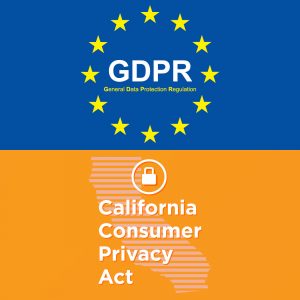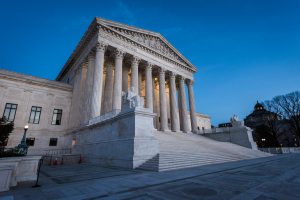The UK and U.S. Governments have now formalized the UK-U.S. Data Bridge. The U.S. Attorney General designated the UK as a “qualifying state” for the purposes of the Executive Order 14086 on September 18, 2023, and the UK regulations implementing the Data Bridge are scheduled to take effect on October 12, 2023. From October 12, 2023, the Data Bridge will therefore operate as an extension of the EU-U.S. Data Privacy Framework (DPF) to enable the unrestricted movement of personal data between the UK and certified U.S. entities. For more information about the DPF, see our earlier briefing here.
CCPA Compliance Concerns for Employers as California Employees Return to the Workplace
As California reopens from the COVID-19 pandemic and workers begin returning to work in-person, many employers have begun requesting their employees provide, sometimes on an ongoing basis, certain health information before returning to the workplace. This includes information such as temperature checks, health surveys, COVID-19 test results, or proof of vaccination status. Given the likelihood that collecting this information will trigger certain requirements under the California Consumer Privacy Act (CCPA), employers should take certain measures to ensure they remain in compliance with the CCPA as their workplaces reopen.
SCOTUS Keeps It Practical in Honing the Definition of an Autodialer under the TCPA
On April 1, 2021, the U.S. Supreme Court resolved a long standing issue plaguing providers of text message services and the companies engaging in text message marketing. Lower courts have been split in defining what constitutes an “automatic telephone dialing system” or auto-dialer with the definition either limited to equipment whose capacity to generate, store and dial telephone numbers was limited to random or sequential numbers or to any device with the capacity to store and automatically dial stored numbers using, for example, a speed-dial function.
COVID-19, COPPA and the CCPA: Educators Face Privacy Questions as Students Move to Remote Learning
 With the shelter-in-place orders imposed by the local and state governments, businesses are scrambling to transition to a virtual workforce and facilitating employees to work remotely from home. Educational institutions are no exception. School administrators and teachers have been working hard to create and implement plans to educate students at home, including maintaining a classroom curriculum through online platforms and incorporating daily or weekly interactions with the teacher and classmates through video chat or remote conferencing services.
With the shelter-in-place orders imposed by the local and state governments, businesses are scrambling to transition to a virtual workforce and facilitating employees to work remotely from home. Educational institutions are no exception. School administrators and teachers have been working hard to create and implement plans to educate students at home, including maintaining a classroom curriculum through online platforms and incorporating daily or weekly interactions with the teacher and classmates through video chat or remote conferencing services.
CCPA, GDPR and the Future of Cross-Device Tracking
 Efforts to regulate cross-device tracking have increased since we last addressed the topic in 2017, following the release of the FTC’s Staff Report. Significant developments include the implementation and enforcement of the EU’s General Data Protection Regulations (GDPR), and the fast-approaching implementation deadline for the California Consumer Privacy Act (CCPA). These regulations, while not targeting cross-device tracking specifically, seek to limit the way in which consumer data is tracked and sold.
Efforts to regulate cross-device tracking have increased since we last addressed the topic in 2017, following the release of the FTC’s Staff Report. Significant developments include the implementation and enforcement of the EU’s General Data Protection Regulations (GDPR), and the fast-approaching implementation deadline for the California Consumer Privacy Act (CCPA). These regulations, while not targeting cross-device tracking specifically, seek to limit the way in which consumer data is tracked and sold.
Client Alert: FTC Issues New Guidance For Mobile App Developers that Collect Location Data
A mobile app that collects users’ location data while the mobile app is not in use should clearly disclose such practices and provide users with choices. Failure to do so could give rise to an FTC claim of deceptive practices.
For more information, please read our Client Alert.
New Canadian Anti-Spam Rules to Take Effect July 1, 2014
Today, we, along with our colleague Michael Heuga, published our client advisory titled New Canadian Anti-Spam Rules to Take Effect July 1, 2014.
If your business uses “commercial electronic messages” to market to your customers and prospective customers in Canada, please be aware of Canada’s new anti-spam rules, which require, among other things, the sender of the electronic message to obtain consent from the recipient before sending the message and the message itself to identify the sender and provide instructions enabling the recipient of the message to withdraw consent to receive such messages.
Additional Source: Canada’s Anti-Spam Law
 Internet & Social Media Law Blog
Internet & Social Media Law Blog




